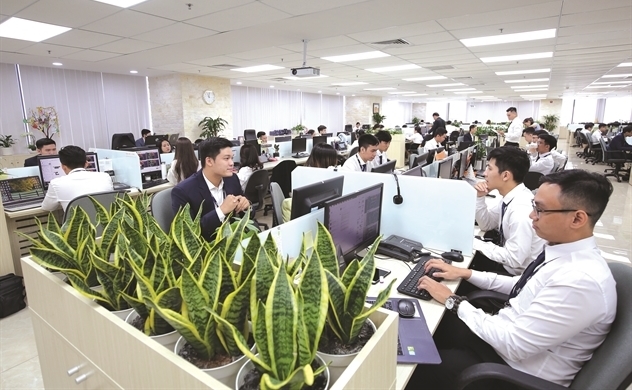The health of the economy has indirect relations to the demand for high-end offices. In the first nine months of 2019, the total registered foreign investment reached $26.16 billion, a 3.1 percent increase compared with the same period 2018.

Foreign companies, the major tenants, account for 68 percent of A-class offices, emphasized the short supply of high-end offices all over the country, especially in the large cities of Hanoi, HCM City and Da Nang.
According to Savills, HCM City is the best office market in Asia, in terms of both rents and occupancy rate. The rent is $60 per square meter per month, while the occupancy rate is up to 97 percent. HCM City has high number of grade-A offices meeting standards, but the future supply is not abundant.
The number of potential tenants in the market can be predicted by the FDI into Vietnam and the movement of relocating production bases out of China. However, A-class office tenants tend to impose foreign standards with very high requirements on quality and technical standards.
| To date, Japanese and South Korean remain the biggest developers of A-class offices. In Hanoi, foreign invested companies tend to lease offices developed by investors from the same countries. |
To date, Japanese and South Korean remain the biggest developers of A-class offices. In Hanoi, foreign invested companies tend to lease offices developed by investors from the same countries.
JICA, JETRO, Mitsubishi, Sumitomo and other Japanese organizations moved to Cornerstone building on Phan Chu Trinh street soon after the building was put into operation. Similarly, most of the tenants at Lotte Center and Keangnam Hanoi Landmark Tower are South Korean companies.
Global Link Cooperative, a Japanese company, has been pouring capital into the real estate sector in Vietnam for the last 10 years with the belief that real estate wull become the No 1 investment channel in Vietnam.
Yoshinori Nakata, director of the company, said he is seeking potential partners to cooperate to develop high-end office and housing projects.
The demand is high and the supply is short, but according to Do Thi Thu Hang from Savills Hanoi, not all investors can develop grade A-offices.
She said A-class office development requires huge financial capability and high techniques, which explains why most developers are foreign companies.
An analyst said that developers have to choose the right locations to build offices in order to ensure reasonable profit. There are many locations suitable for A-class offices in the central area, but the investment rate will be very high if investors develop only 10-storey buildings. Besides, the floor area must be 1,000 square meters at least to ensure profit.
According to Dang Phuong Hang from CBRE Vietnam, there are now two different price levels in Hanoi and HCM City, but the rents were nearly the same five years ago.
Mai Lan

Banks tighten credit as real estate developers search for more capital
Real estate firms are seeking new sources of capital as commercial banks have tightened lending.

Real estate giant Lideco to be fined for billions of VND in taxes
Due to tax violations, real estate giant Lideco has been fined for VND2.3 billion ($100,000).
 High demand and short supply have pushed up prices for A-class office rentals.
High demand and short supply have pushed up prices for A-class office rentals.